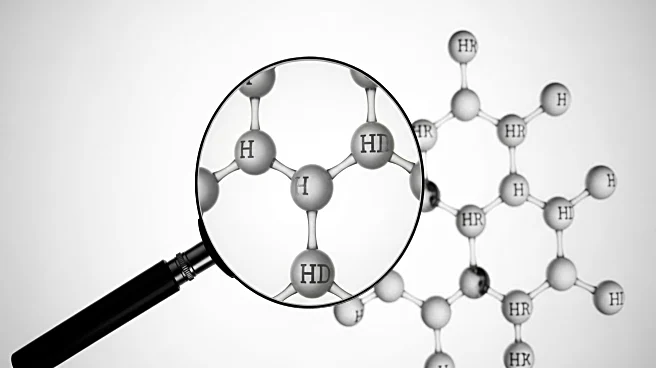What is the story about?
What's Happening?
Researchers have discovered that naked mole-rats possess unique amino acid substitutions in the enzyme cGAS, which enhance DNA repair and contribute to their extraordinary longevity. The study, led by Yu Chen and colleagues, found that these substitutions reduce ubiquitination and degradation of cGAS, allowing it to persist longer and at higher levels after DNA damage. This increased presence strengthens interactions with repair factors, boosting homologous recombination (HR) repair. The findings suggest that these evolutionary mutations in naked mole-rat cGAS not only enhance DNA repair but may also directly contribute to the species' long lifespan.
Why It's Important?
The discovery of the molecular mechanism behind naked mole-rat longevity has significant implications for understanding aging and DNA repair processes. Naked mole-rats live nearly ten times longer than similar species, making them a valuable subject for research into longevity. The study's findings could lead to advancements in genetic engineering aimed at enhancing DNA repair in humans, potentially extending human lifespan and improving health outcomes. This research also opens new avenues for studying the role of cGAS in other organisms, which could lead to breakthroughs in age-related diseases and cancer prevention.
What's Next?
Further research is needed to explore the roles that cGAS may play in the nucleus of other organisms, both short- and long-lived. Scientists aim to establish whether similar mechanisms can be applied to human DNA repair processes, potentially leading to new treatments for age-related diseases. The study encourages continued investigation into the molecular factors that promote longevity, with the potential to develop interventions that mimic the naked mole-rat's DNA repair capabilities in humans.
Beyond the Headlines
The study highlights the ethical considerations of genetic engineering for longevity. While enhancing DNA repair could improve health outcomes, it raises questions about the implications of extending human lifespan and the societal impacts of such advancements. Researchers must consider the long-term effects of manipulating genetic processes and the potential for unintended consequences.















